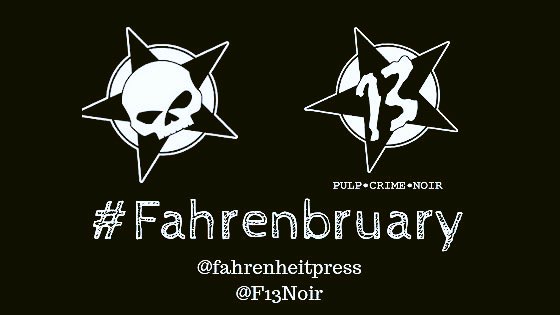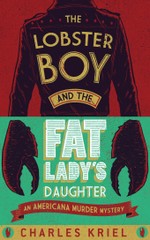Here’s the first book I read from Fahrenheit Press. It left an impression. In addition to the Kindle copy I bought, I have two paperback versions of this — and ordered the Hardcover last year (not sure what happened there…oh well). I wonder today if I’d given it more stars, I think I would’ve. It’s just weird enough that I didn’t know how to judge it. I’m still not sure I do, but I wish I had time for a re-read, I think I can appreciate more of it now that it’s percolated in the back of my mind for 3 years and change.
More than anything, I really hope that Kriel gives us another book with these people some time.
Be sure to check out the music video of the song FP commissioned to accompany the book.

by Charles Kriel
Series: Mel Barry Investigates, #1Kindle Edition, 250 pg.
Fahrenheit Press, 2015
Read: October 31, 2015

I can’t give this one the discussion it needs with my standard spoiler-free stuff. So…after the break below, I’ll talk about my spoilery-beefs with this book. If you don’t want to read them (I’m not sure I’d blame you for skipping) read on. Otherwise, you can stop when you get to the stars.
Carnival/Freak Show owner Charlie “Lobster Boy” Koontz is being framed for murder, and given his physical appearance, an already ugly situation promises to get much, much worse. So he does the unthinkable — he calls his adopted daughter for help. You’ll have to read to find out why this is such a dumb move. Mel comes to town, starts asking questions, kicking some butt — occasionally getting a name — all while reconnecting with her carnie roots and learning a bit more about her family.
Mel’s a combination of Jack Reacher and Charlie Fox with a more mysterious past than either. Which Kriel teases us with frequently, but doesn’t give us much to go on. I’m fine with that, if we get a sequel that actually explains what happens to Mel post-carnival, otherwise, it’s a problem (one that’s not Kriel’s fault, really). Anyway, she’s good with a gun, good with hand-to-hand, crafty as all get-out and determined to get Charlie out of jail no matter what.
We don’t get much of an idea about the town that the murder takes place in, we get a flavor of some of the leadership — we see that Law Enforcement is a racist joke, and that there’s a strip joint. That’s pretty much it. Kriel comes close to playing the stereotype card, but somehow avoids it. We see almost nothing of the populace, no characters that we can remember longer than the sentence that they’re (outside of the villains, obviously)
We get a good look at The Lobster Boy’s Mermaid Parade, on the other hand. It’s a not just a group of coworkers, it’s a family — admittedly, a strange family. They live together, travel together, perform together, play together — it’s enough to make you want to run off and join them. But you should probably bend a law or two first, so you can fit in. And it’s filled with characters — almost none of which we get adequate time with, but enough to make them people, enough to remember in a couple of cases, at least.
Early on, there is a rape scene that I found to be gratuitously graphic. I get that occasionally for reasons of plot or character, you’ve got to have a scene along those lines — and while I don’t appreciate them, I can accept them. But they need to serve a purpose, this one seems to do little more than demonstrate that the man is a creep, a misogynist, violent with a twisted idea that he’s connected to Mel. Now we already know everything except the violence before things got graphic, and there’re other ways to show that. I’m not saying the guy can’t rape the girl to illustrate this stuff if that’s what an author thinks is best, but we don’t need the details. The fact that he rapes someone alone says that. The details don’t add to that. A couple of chapters earlier, there’s an attempted rape scene (different perpetrators, different victim) — I had no problems with that at all, because it accomplished things that served the story and the characters.
The first two chapters of this were interesting, yeah, but there was something about it that made me think this wasn’t going to be a book for me — no matter how well-written it turned out to be, there was just something that didn’t appeal. I’m not sure if I finished Chapter 3 before I decided I was wrong — I liked Mel, straightaway. I still wasn’t sure about anything else in the book, but if this was her book, I was in.
This was a fast read, a compelling read, and a fun read — and were it not for graphic elements in the rape scene and the stuff coming up below, I’d have rated it higher. Still, Mel Barry is a character I want to see more of, and I’m sure Charles Kriel is an author I will see more of. Especially at a Kindle price, it’s worth the read — would be for twice what Amazon is asking, too.
—–

Read More






